
RESPOND-AFRICA: Capacity Strengthening
Building Capacity of future leaders
The institutions within our partnership were largely focussed on infectious diseases when our NIHR Group started in 2017. Today, research on chronic diseases are major programmes in all of our institutions and is growing. With initial modest funding to start the Group, we concentrated heavily on on-the-job training and built the skills of Group members. Our more recent funding has provided us with a much-needed opportunity to provide more formal training as well.
We currently have a training lead (Dr Anupam Garrib, LSTM) and training needs are agreed among partners at steering committee meetings. Based on our training assessments for our current activity, our approach to capacity building is targeted at both the individual and institutional levels. We have participated and contributed to the NIHR training forums.
Building capacity of future research leaders in chronic conditions:
To date we have supported two Masters and three PhD students through our programmes with plans to expand this over the next 3 years.
Faith Aikaeli, from Tanzania, studied an MSc in Epidemiology at the London School of Hygiene and Tropical Medicine in 2020 and completed her summer project with the partnership. You can read more about Faith’s experience here.
Short Courses
We have held a series of short courses for the programme team and for policy-makers in Tanzania and Uganda on topics such as:
- Operational research methods
- Interpreting evidence
- Leadership skills
- External and internal communications
- Writing papers
- Unconscious bias
Right: Training session for research staff and policy-makers, Dar es Salaam, Tanzania
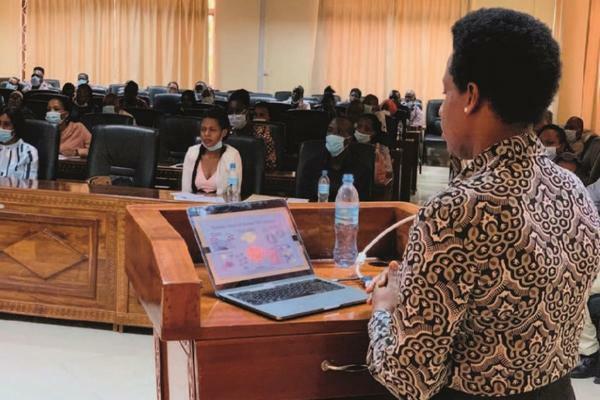
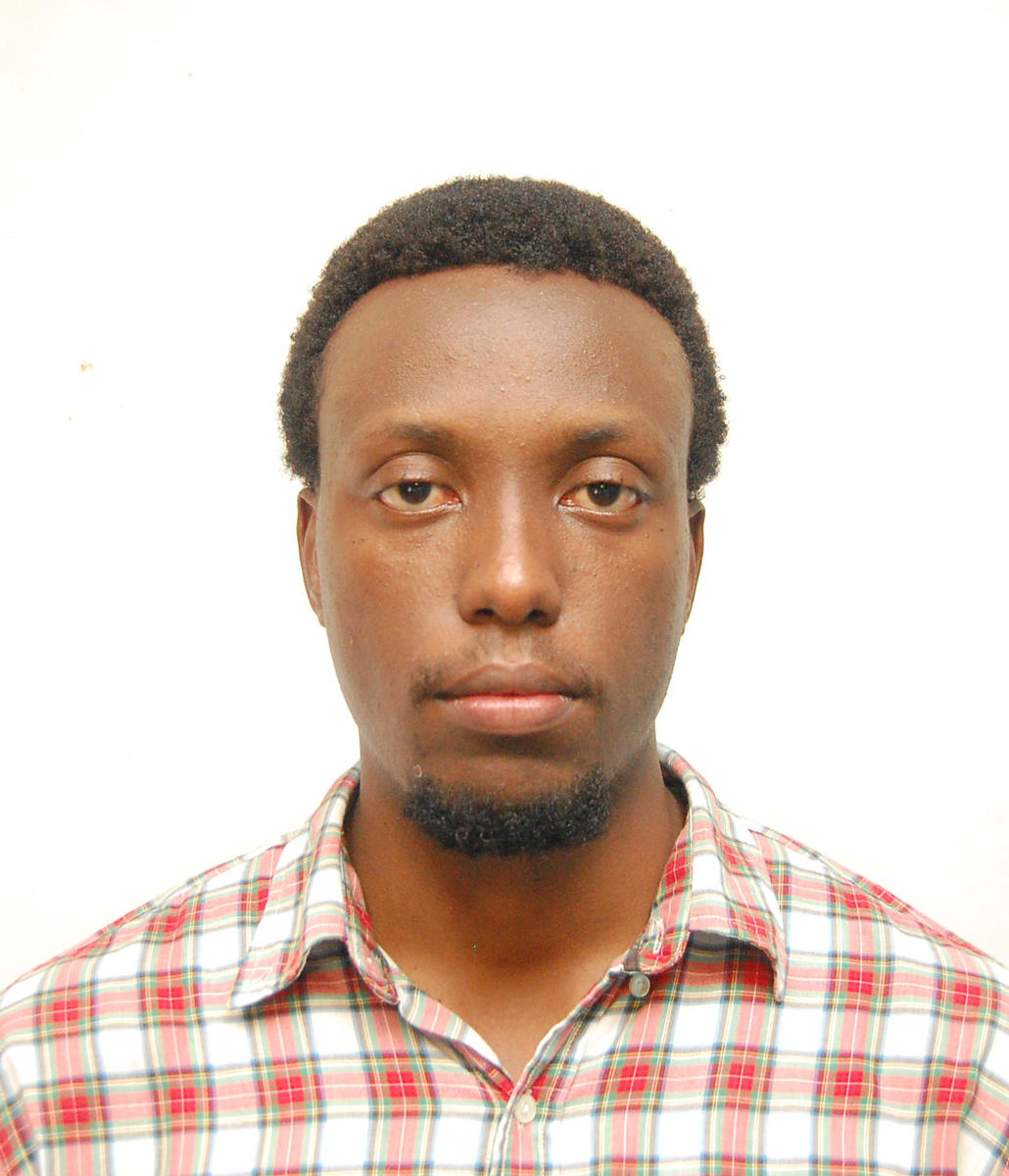
Data management
Having identified a lack of capacity in programme databases, we are actively developing capacity in python (database) programming language and creating capacity in both Tanzania and Uganda to develop and manage databases.
Fredrick Amani from NIMR in Tanzania was selected to undertake a data governance training course. You can read Frederick’s account here
PhD’s and Masters courses
We support Masters and PhD students through our programmes with plans to expand this over the next 3 years.
Faith Aikaeli, from Tanzania, studied an MSc in Epidemiology at the London School of Hygiene and Tropical Medicine in 2020 and completed her summer project with the partnership. You can read more about Faith’s experience here.
On-the-job training
We are using the skills available within the group to conduct internal ‘on-the-job’ training sessions in a variety of formats.
- Short tailor-made training sessions are done every month or so. These have focussed on aspects of paper writing, statistical analysis and communications.
- Journal club to support the analytic and critical skills development in the research teams.
- Data analysis and paper writing weeks. Every 6 months, 3-5 junior-mid level researchers come together to work for 1-2 weeks on data analysis and writing papers. During this time, they have daily access to senior researchers for technical support as needed. The Director and Co-Directors of the partnership spend considerable amounts of time on this on-the-job training, supporting and mentoring mid-level researchers.
- For research staff, we are conducting a series of updates on clinical aspects of chronic disease diagnosis and management that are relevant to our research studies.
Feedback from this type of training has been very positive and we have seen the benefit through improved interpretation of papers, data analysis and higher quality writing.
Right: NCD and HIV staff training meeting at Mpigi Health Centre, Uganda
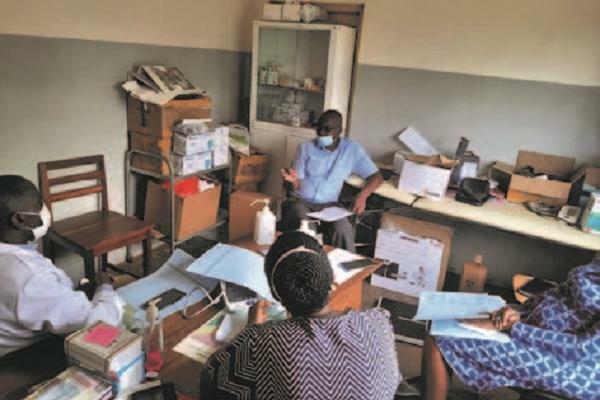
Institutional capacity strengthening
Our African partners have applied for highly competitive research either as lead or joint lead applicants. The partnership supports our LMIC partners by providing training in any identified gaps from due diligence (for example, safeguarding, risk management, financial management) and provides peer review of proposals and publications.
Through a Financial Assurance Fund award, we are building the financial and organisational capacity of Hindu Mandal Hospital in Tanzania.
- Developing and producing governance manuals especially around finance, HR, risk.
- Training the hospital finance team in managing research funds.
- Providing ongoing mentoring and support to the finance team.
Through our INTE-COMM programme we are providing similar support to NIMR, Tanzania culminating in them being provided with a Good Financial Grants Practice (GFGP) tier accreditation
Right: Dr Edna Majaliwa, Shree Hindu Mandal Hospital, Dar es Salaam, Tanzania
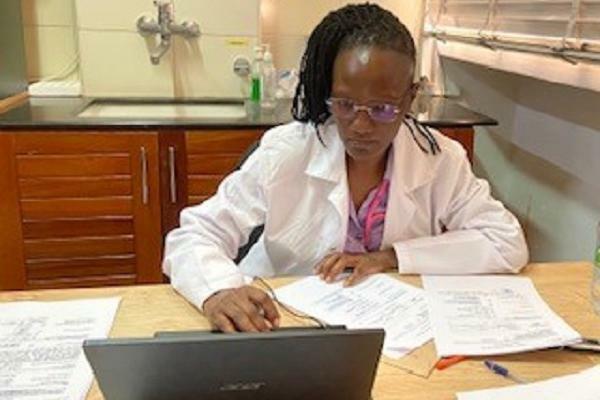
Clinical skills training
Our experience is that clinical skills in diabetes and hypertension are weak, including in measurement of simple indicators such as height, waist circumference, and blood pressure.
We run a programme of training in diabetes and hypertension management at our study sites and in basic research methods for clinical staff.
In both Tanzania and Uganda, as part of our studies on the integration of care for diabetes, hypertension and HIV, we have run refresher clinical training for health care workers on the clinical management of all 3 conditions in primary care. This training comprised of a combination of two days of classroom sessions and on-the-job training supporting the development of skills for the integrated management of these conditions.
Counselling has generally not been available for diabetes and hypertension management in either country but was available routinely for patients with HIV-infection. We therefore provided training to nurses and counsellors on diabetes and hypertension, with a focus on the need for high treatment adherence to prevent complications.
In addition to this, we have provided clinical staff in both countries with training in basic research methods.
Right: Programme and clinical staff taking part in clinical skills training at Ruhoko health centre, Uganda
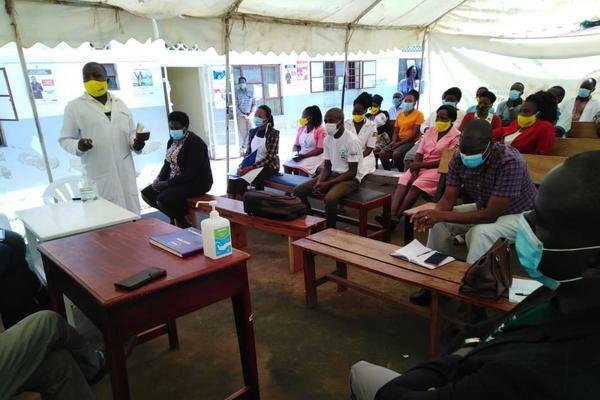
Opportunities
Crucially, our research network is now large enough to provide supervision for PhD studies in a diverse range of disciplines including in Epidemiology, Health Economics and Social Science. We have a large number of activities and materials and work with local universities in Africa to provide opportunities for training of their postgraduate students. Scholarship opportunities will be advertised regularly on our website so please do visit us often to find out more.